Maisie Dobbs, by Jacqueline Winspear
>> Thursday, June 28, 2007
TITLE: Maisie Dobbs (excerpt)
AUTHOR: Jacqueline Winspear
COPYRIGHT: 2003
PAGES: 294
PUBLISHER: Quality Paperback Book Club (there's also a Penguin edition, which is the one with the cover you see below)
SETTING: 1929 England (with extensive flashbacks to the 1910s, both in England and in France during WWI)
TYPE: Mystery
SERIES: kicks off the Maisie Dobbs series.
REASON FOR READING: I'm not quite sure on whose recommendation I bought it, but I liked the idea of a psychologist-investigator heroine in the 1920s. I finally picked it up from my TBR because of Li's comments.
THE PLOT: It's 1929 and, after working for her mentor for years, Maisie Dobbs establishes her own investigator business. Her first case is an apparently very straighforward one: a man who suspects his wife is being unfaithful and wants her followed to find out what she does when she disappears every Wednesday. But Maisie is not a typical investigator, and she soon detects a mysterious feature in this case, one which will lead her into a much more dangerous case, and that will bring back memories of Maisie's experiences of the suffering she witnessed during WW I.Hailed by NPR's Fresh Air as part Testament of Youth, part Dorothy Sayers, and part Upstairs, Downstairs, this astonishing debut has already won fans from coast to coast and is poised to add Maisie Dobbs to the ranks of literature's favorite sleuths.
Maisie Dobbs isn't just any young housemaid. Through her own natural intelligence—and the patronage of her benevolent employers—she works her way into college at Cambridge. When World War I breaks out, Maisie goes to the front as a nurse. It is there that she learns that coincidences are meaningful and the truth elusive. After the War, Maisie sets up on her own as a private investigator. But her very first assignment, seemingly an ordinary infidelity case, soon reveals a much deeper, darker web of secrets, which will force Maisie to revisit the horrors of the Great War and the love she left behind.
MY THOUGHTS:There's a mystery here, and Maisie does investigate it, but because of the book's structure, I'd hesitate to label this book as a mystery novel.
The first section of the book introduces Maisie's first case. She sets herself up as an investigator and she's consulted by a man who believes his wife might be unfaithful. As cases go, this is very straightforward and Maisie quickly discovers what the woman is doing when her husband believes she's with a lover. This section ends with the suggestion that Maisie might have stumbled on something mysterious, something related to the war (WWI) and very much tangential to the original case.
I found this first section difficult to get through, even though it was shortish, mostly because I thought the characters sometimes behaved in ways that felt fake. Like the first meeting between Maisie and her first client. Let's just say Maisie doesn't behave as a "normal" detective; she goes on about her responsibility to the truth and wants to know what her client plans to do with it when she finds it and a lot of things in that vein (things that make sense after you read the rest of the book, but that made me go "huh? WTF?" when I read them here). And the client, though not exactly pleased, takes it and still hires her. Err, not likely. And then there's her instinctive conviction that there's something important to be investigated in this tangential issue I mentioned. I have no idea what made her think that, really.
And then we get a long section, easily three times as long as the first one and comprising over half the book, detailing how Maisie got to the point where we see her start. We know from the beginning that she's a former housemaid, that she managed to attend Cambridge, that she nursed in Europe during the War, that she was trained in her very special kind of investigating by a man called Maurice Blanche. Well, in this section, we actually see all this, and it's fascinating stuff. Maisie's life is very intriguing, and I liked this section much better.
And then it's back to the present and to the case, in a way that's much more orthodox "mystery novel"-like. It's here that Maisie's unique approach to investigation really shines. Now we do understand why she behaves the way she does (though I would love to see more about what Maurice's training entailed, exactly) and I very much appreciated the care with which this was drawn. Maisie isn't the kind of detective that will simply barge into a situation and find out the truth, no matter its consequences and who she hurts while doing so, secure in her belief that the truth should come out and that's that. No, Maisie feels very much responsible for the effects her asking questions will have on the people involved, especially those who share their stories with her. It will be interesting to see more details and examples of this in the following books.
Something else I enjoyed about the book was the setting, which was vividly drawn and I thought really captured a very different atmosphere. Lately I've become especially interested in the WW I period and the time between the wars, and MD delivered some fascinating (and tragic) insights into both.
MY GRADE: A B. It took me a bit too long to work through the first part to allow me to grade it better. I'll definitely be reading the second book, which I already have, as my edition is a 2-in-1.




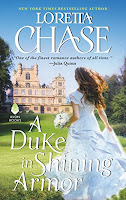
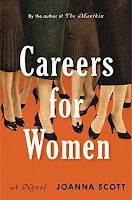
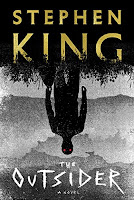
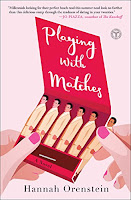
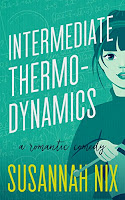
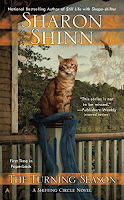
0 comments:
Post a Comment